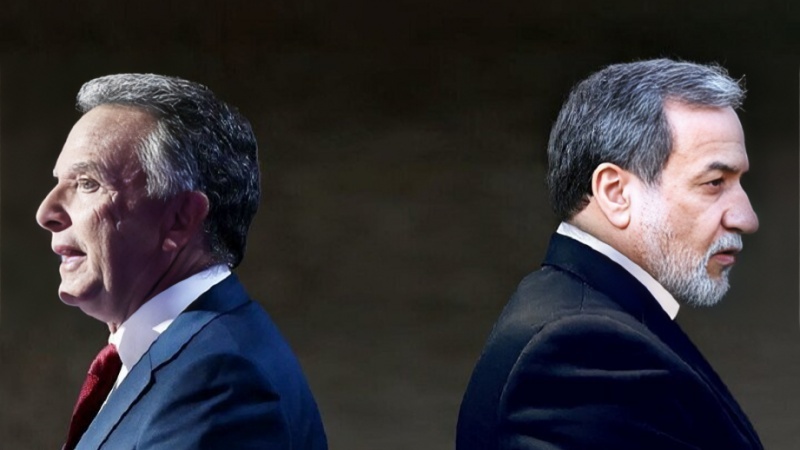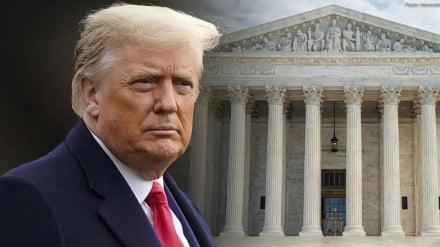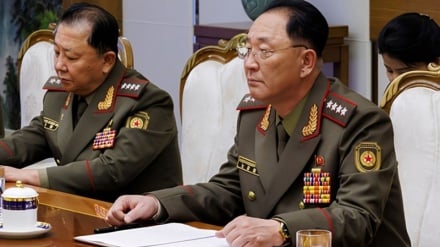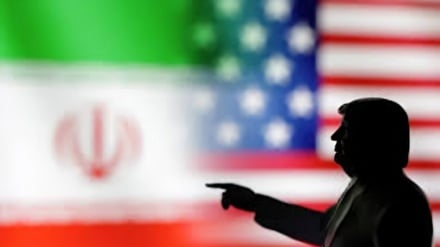Pars Today's Iran and world news package
Indirect Tehran-Washington talks; A test of U.S. intentions / Israel remains concerned…
-

On the right: Iranian FM Seyyed Abbas Araghchi - On the left: Steve steve witkoff, the representative of the US President for West Asia affairs.
Pars Today – Indirect negotiations between Iran and the United States aimed at lifting sanctions against Tehran are set to take place on Saturday in Muscat, the capital of Oman.
Finally, after two months of political debate and uproar in the international arena, the Islamic Republic of Iran has agreed to engage in indirect talks with the United States. These talks are scheduled to be held on Saturday in Muscat, the capital of Oman, as the third-party host country.
The upcoming talks in Oman are part of diplomatic efforts to ease tensions between Iran and the United States, which have escalated over the years due to various issues, including Iran's nuclear program, sanctions, and regional tensions.
Nevertheless, Iranian diplomatic officials view these negotiations as a litmus test for assessing U.S. intentions. For instance, Esmaeil Baghaei Hamaneh, the spokesperson for Iran’s Foreign Ministry, wrote on social media platform X on Friday, ahead of the indirect talks between Iran and the U.S.: “With goodwill and full vigilance, we are giving diplomacy a real opportunity. The U.S. must appreciate this decision, which was made despite their hostile provocations.”
The spokesperson for Iran’s diplomatic apparatus, while emphasizing that Tehran neither prejudges nor predicts outcomes, noted: “Iran intends to evaluate the intentions and seriousness of the other side on Saturday and will adjust its subsequent moves accordingly.”
Earlier, Seyyed Abbas Araghchi, Iran’s Foreign Minister, described the talks in Oman as a "test" in an article published in the American newspaper The Washington Post. He wrote: “The ball is in the United States’ court.”
In this regard, Behnam Saeidi, a member of the Presiding Board of Iran’s National Security and Foreign Policy Committee in the Iranian Parliament, emphasized on Thursday the red lines for Iran in indirect talks with the U.S., including peaceful nuclear activities, defensive capabilities, and missile power. He stressed: “Having peaceful nuclear energy and missile and defensive capabilities is the right of the Islamic Republic of Iran, and we will not negotiate these matters with any country.”
On the U.S. side, Secretary of State Marco Rubio expressed hope on Thursday evening that the negotiations between the U.S. and Iran would lead to peace.
Meanwhile, the main actor behind tensions, war, and conflict in West Asia – the Zionist regime – remains concerned about the dominance of the diplomatic process in the international arena.
The Zionist publication The Jerusalem Post, in its latest response to the indirect Iran-U.S. talks in Oman, reported citing informed Zionist sources: “Senior Israeli sources have expressed concern that U.S. President Donald Trump might sign an agreement with Iran that Israel considers ‘weak’ or ‘moderate.’”
Despite this, Iran remains skeptical of the United States, a skepticism rooted in the contradictory behavior of the U.S., stemming from decades of unjust sanctions against Tehran. Recently, even as Tehran and Washington prepare for indirect talks in Oman, the U.S., influenced by Zionist lobbying, is seeking to intensify pressure on Tehran.
Following this approach, just before Saturday's indirect talks, the U.S. Treasury Department sanctioned one individual and four companies accused of helping Iran circumvent oil industry sanctions.
MG


